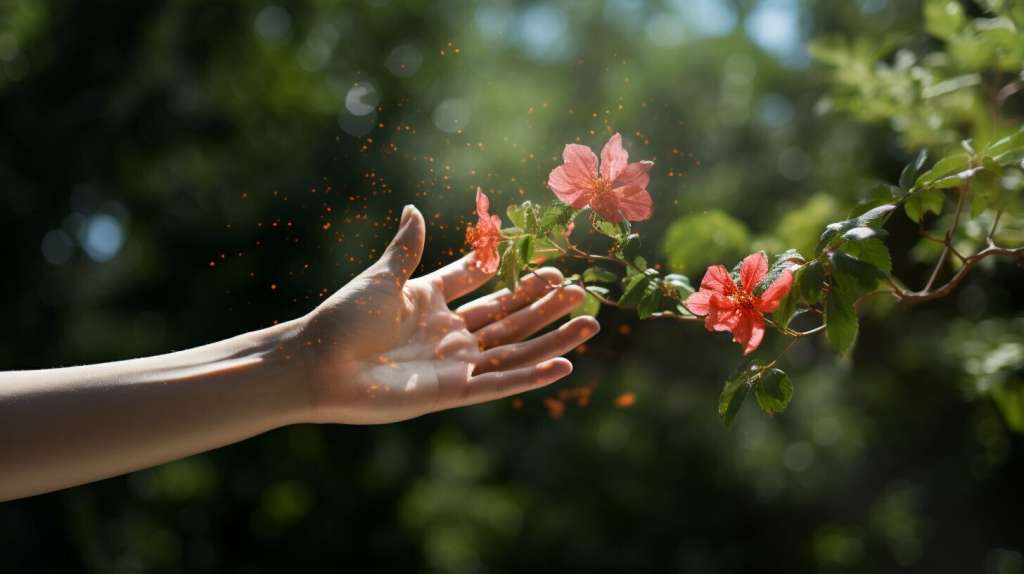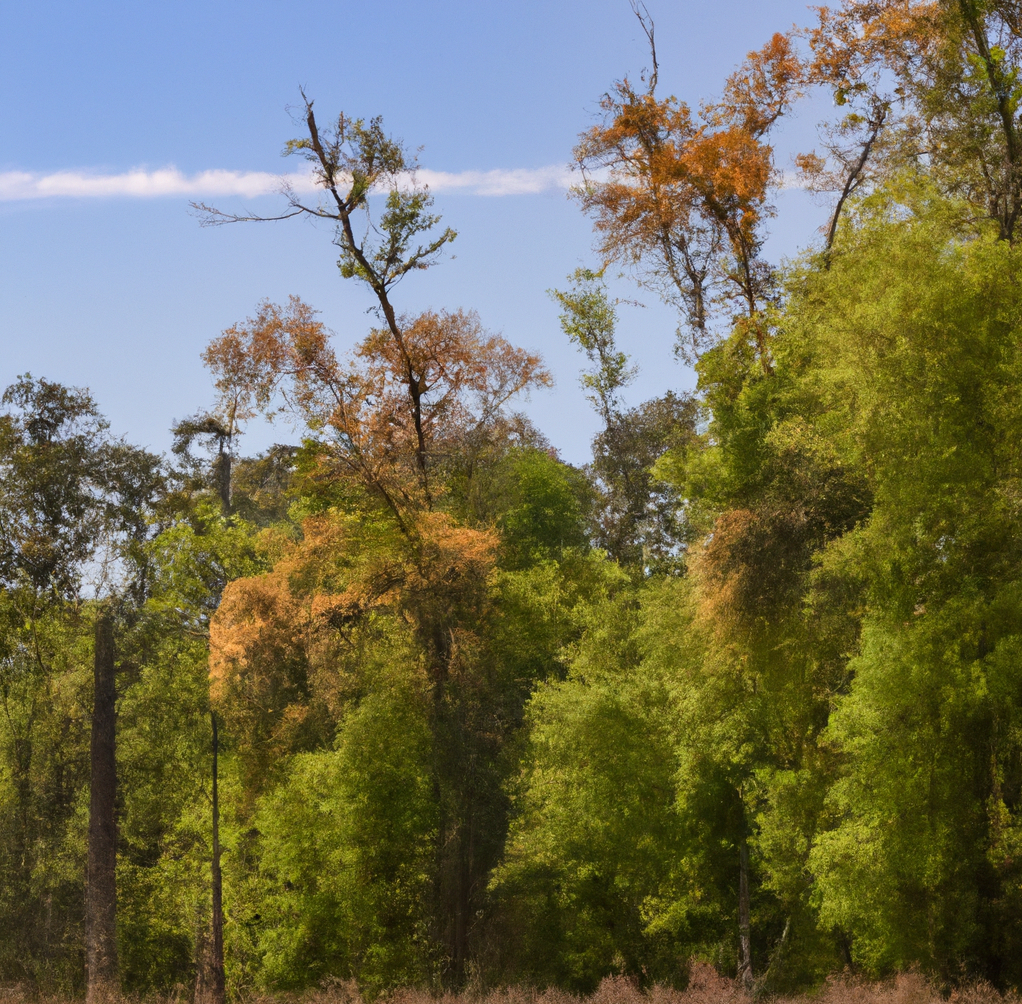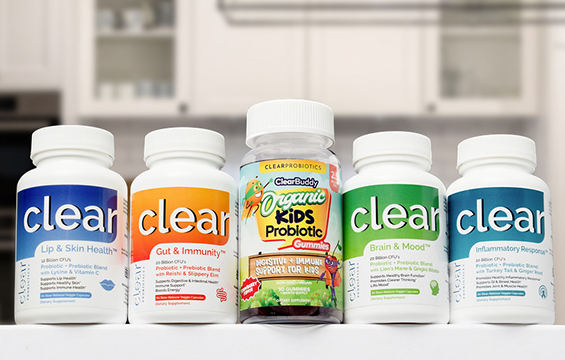Table of Contents
ToggleWhat Are Seasonal Allergies?
Welcome to South Carolina, where the beauty of blooming springs and sun-soaked summers comes with a little twist: seasonal allergies!
Seasonal allergies are immune responses to airborne substances, like pollen, that appear during certain times of the year.
As the oaks, pines, and maples burst into life in the spring, they shower the air with pollen, triggering sneezes and watery eyes.
When summer rolls in, grasses like Bermuda and ryegrass take the stage, followed by the notorious ragweed in the fall.
Our state’s warm and humid embrace often intensifies these symptoms. But don’t fret! Dive into our blog and arm yourself with all the tips and tricks to navigate South Carolina’s allergy season like a pro.

When Is Allergy Season in South Carolina?
A time when the air is thick with misery and the state transforms into a playground of suffering. But when exactly does this torturous period begin?
Allergy season in South Carolina typically kicks off in the early spring, around late February or early March.
As the days grow longer and the sun shines brighter, so does our collective dread of pollen.
The primary culprit responsible for our misery is none other than our beloved state tree – the mighty pine.
These majestic giants release clouds of pollen into the air, turning our beautiful landscapes into a hazy nightmare.
Our lovely oaks and maples also contribute their fair share to this cacophony of allergens.
So there you have it: South Carolina allergy season is an orchestra of nature conspiring against our well-being from late February onwards.
Prepare yourselves my fellow sufferers; stock up on antihistamines and tissues because the war on pollen has already begun!

Allergen Chart for South Carolina
| Allergen | Season | Common Sources |
|---|---|---|
| Tree Pollen | Spring (February to May) | Oak, maple, pine, cedar, elm |
| Grass Pollen | Late Spring to Early Summer | Bermuda, Bahia, Kentucky Bluegrass, Ryegrass, Timothy |
| Weed Pollen | Late Summer to Fall | Ragweed, sagebrush, lamb’s quarters, English plantain |
| Mold Spores | Year-round (peaks in spring and fall) | Alternaria, Aspergillus, Cladosporium, Penicillium |
| Dust Mites | Year-round (increases in humid months) | Indoor dust mites |
| Insect Allergens | Year-round (warmer months) | Cockroaches and stinging insects |
What Months Are South Carolina Allergy Season?
South Carolina allergy season is an absolute nightmare for anyone unfortunate enough to reside in this pollen-infested state.
It seems like an eternity of torment, stretching from late March all the way through May.
Yes, you heard that right, a whopping three months of incessant sneezing, itchy eyes, and an overwhelming desire to claw your own face off!
It starts innocently enough in late March when the first signs of spring begin to emerge.
The trees slowly awaken from their winter slumber, releasing tiny particles of pollen into the air.
Initially, it’s barely noticeable; a slight tickle in the back of your throat or maybe a stray sneeze here and there.
But don’t be fooled by this false sense of security because as April rolls around, so does the full force of allergy season.
April is undoubtedly the peak month for South Carolina allergy season.
Everywhere you look, you’re met with a sea of yellow-covered cars, sidewalks, and even your beloved pets who can’t seem to escape its clutches either.
It’s impossible to go outside without feeling like you’re walking through a cloud of toxic substances intent on infiltrating every nook and cranny of your being.
If you have the misfortune of living in this pollen-infested state, prepare yourself for a battle against nature that will test your sanity and make you question why you ever chose to reside here in the first place (joking of course).
When Does Pollen Season End In South Carolina?
Understanding allergy season in South Carolina can be a bit tricky. While tree pollen often hits its high in April or May, it doesn’t just wave goodbye as summer steps in.
Instead, the dance continues. Grass pollen gracefully takes center stage, challenging our immune systems throughout June and maybe even July.
Dreaming of uninterrupted lazy summer days? Well, keep those tissues handy!
And just when you start feeling a bit more relaxed, ragweed decides it’s time for a surprise visit, typically around late summer or early fall.
This plant, in its subtle mischief, releases its tiny pollen particles into our surroundings. The result? Some pretty intense sneezes that feel like nature’s own fireworks. And here’s something to note:
Ragweed has a tendency to stick around, sometimes until October or even November, ensuring the allergy season keeps us on our toes.
To all my fellow South Carolinians navigating this sneezy journey, remember to gear up. The timeline of allergy season here isn’t always predictable. Stay prepared and take care!
So my dear fellow sufferers, brace yourselves for an extended period of nasal congestion and eye irritation because there is no definitive end date to allergy season in South Carolina.
Common Allergens in South Carolina
Pollen
Pollen blankets South Carolina extensively, especially during specific seasons. Trees like oak, pine, and cedar release their pollens, leading many residents to experience sneezing, itching, and other allergic reactions.
Mold
Benefiting from South Carolina’s humid environment, mold thrives, particularly in consistently damp areas. Showers, basements, and indoor plants often become their breeding grounds, causing respiratory issues and other allergy symptoms for those exposed.
Dust Mites
In the cozy confines of our homes, microscopic dust mites find a haven. As they feed on human skin flakes, they become a source of allergens, leading to itchy eyes and sneezing fits for many.
What Are Seasonal Allergy Symptoms in South Carolina?
- Sneeze frequently: When allergens enter the nasal passages, they can trigger sudden, often multiple sneezes in succession.
- Experience a runny or stuffy nose: Allergens irritate the nasal lining, leading to increased mucus production or congestion.
- Rub watery, itchy eyes: Pollens and molds can cause allergic conjunctivitis, making eyes red, watery, and intensely itchy.
- Feel an itchy throat and ears: The same allergens that affect the nose and eyes can make the throat and inner ears itch and feel irritated.
- Cough due to postnasal drip: The mucus produced in the nasal passages can drip down the back of the throat, causing a persistent cough.
- Notice dark circles under the eyes: Known as “allergic shiners,” these result from congestion in the small blood vessels beneath the eyes.
- Detect a decreased sense of smell or taste: Congestion and inflammation can hamper the senses, making it hard to taste or smell.
- See swollen, blue-colored skin under the eyes: Nasal congestion can cause blood pooling, leading to this distinct appearance.
- Feel fatigued: The body’s response to allergens can be draining, making those affected feel unusually tired.
- Suffer from headaches: Sinus congestion and pressure often result in headaches, especially around the forehead and cheeks.
- Experience shortness of breath or wheezing: Those with asthma might find that allergens exacerbate their symptoms, causing difficulty in breathing.
- Show skin reactions like eczema or hives: Some people react to allergens with skin flare-ups, such as red, itchy patches or raised welts.
- Struggle with sleep disturbances: Discomfort from symptoms or the effects of medications can disrupt a good night’s sleep.
How to Prepare for Seasonal Allergies in South Carolina?
Here are some essential tips on how to prepare for seasonal allergies in the Palmetto State.
- Stay Informed:
- Check local weather reports daily to understand pollen forecasts. Adjust your outdoor plans based on these forecasts to minimize exposure.
- Bedding Considerations:
- Choose allergy-proof bedding to reduce irritants like dust mites. Regularly wash and change bedding to ensure an allergen-free sleeping environment.
- Maintain Cleanliness:
- Vacuum carpets at least once a week to remove potential allergens. Dust all surfaces and wipe down furniture frequently to keep airborne irritants at bay.
- Air Quality:
- Place air purifiers equipped with HEPA filters in high-traffic areas of your home. Clean or replace the filters regularly to maintain optimal air quality.
- Protective Clothing:
- Wear sunglasses outdoors to prevent allergens from irritating your eyes. Choose wide-brimmed hats and full-sleeve clothing to shield yourself from falling pollen.
- Overall Health:
- Consume a balanced diet rich in antioxidants and vitamins to strengthen your immune response. Engage in regular physical activity and ensure you get adequate rest to rejuvenate your body and boost resilience against allergens.
Allergy Symptom Relief and Treatment
Alright, if you’re trying to get through pollen season in South Carolina without your allergies going off the charts, here’s the scoop:
Allergies can be a real pain, but hang in there. I’ve got some pointers that might help, even if they sound a bit different from the usual advice.
Everyone talks about those over-the-counter antihistamines, right? I mean, some people swear by them, but they might not be the end-all solution for everyone.
Have you heard about the natural remedies scene? I’m talking about things like nettle tea and local honey.
I was skeptical at first, but after hearing some success stories, it might be worth a shot.
If you’re in it for the long game, consider tweaking your lifestyle a bit. Think about investing in an air purifier with a HEPA filter – it’s a game changer when pollen season hits.
Pro Tip: shower before bed to wash off any pollen, and keep your windows closed when the pollen count is high.
So, beyond just taking meds, consider trying out natural remedies and changing up your routine. You might find a combination that keeps those allergies in check. Stay strong through pollen season, SC friends
A Word from HealthyVibe
Pollen season in South Carolina poses significant challenges for those with allergies.
With prevalent allergens like oak, pine, and grass pollens, the symptoms of sneezing, itchy eyes, and nasal congestion become almost a daily routine.
However, South Carolina’s magnificent outdoors shouldn’t be overlooked during these trying months.
By preparing in advance—securing allergy medications, maintaining an allergen-free environment, and seeking timely medical advice—people can still navigate this difficult season. T
here are many remedies available, from over-the-counter options to alternative treatments.
While pollen season is challenging, preparation and proactive measures can make it manageable. So, venture out, equipped with the necessary precautions, and experience the beauty of the state, knowing that each day moves you closer to clearer skies.
FAQ
1. What triggers seasonal allergies?
Airborne substances like pollen, especially from trees such as oaks, pines, and maples, actively provoke immune reactions in South Carolina during certain times of the year.
2. When does the allergy season begin in South Carolina?
Late February or early March typically marks the onset of the allergy season. Pines, as well as oaks and maples, actively release allergens into the environment.
3. How long do allergies persist in South Carolina?
Allergies typically dominate from late March to May, reaching their pinnacle in April.
4. When does the pollen influx conclude in South Carolina?
While tree pollen reaches its zenith around April or May, grass pollen takes the reins through June and possibly July. Ragweed then makes its presence felt from late summer to early fall, often extending its stay until October or November.
5. What symptoms do seasonal allergies induce?
People often report a barrage of symptoms: sneezing spells, nasal congestion, watery eyes, throat itchiness, a persistent cough from postnasal drip, pronounced dark eye circles, muted senses of taste or smell, skin outbreaks, disrupted sleep patterns, and more.












